Georgian opposition vows to blockade parliament following weekend of protests


Several Georgian opposition groups have vowed to prevent MPs from entering parliament after the ruling party failed to pass electoral reforms last week. Georgian Dream is facing street protests from an unprecedented spectrum of opposition groups over their U-turn over the reforms.
‘All against one’ was the slogan of Sunday’s rally in Tbilisi, which united a wide spectrum of opposition groups against the ruling Georgian Dream party.
Gathered outside parliament for a third consecutive day, opposition leaders both from parliamentary and non-parliamentary groups demanded snap elections be held under an interim government with a proportional electoral system.
Georgian Dream chair Bidzina Ivanishvili promised a transition to a fully-proportional system in June in response to protests.
Opposition groups set up ‘permanent tents’ to block the entrances to parliament on 17 November and vowed to prevent MPs from entering the building on Monday.
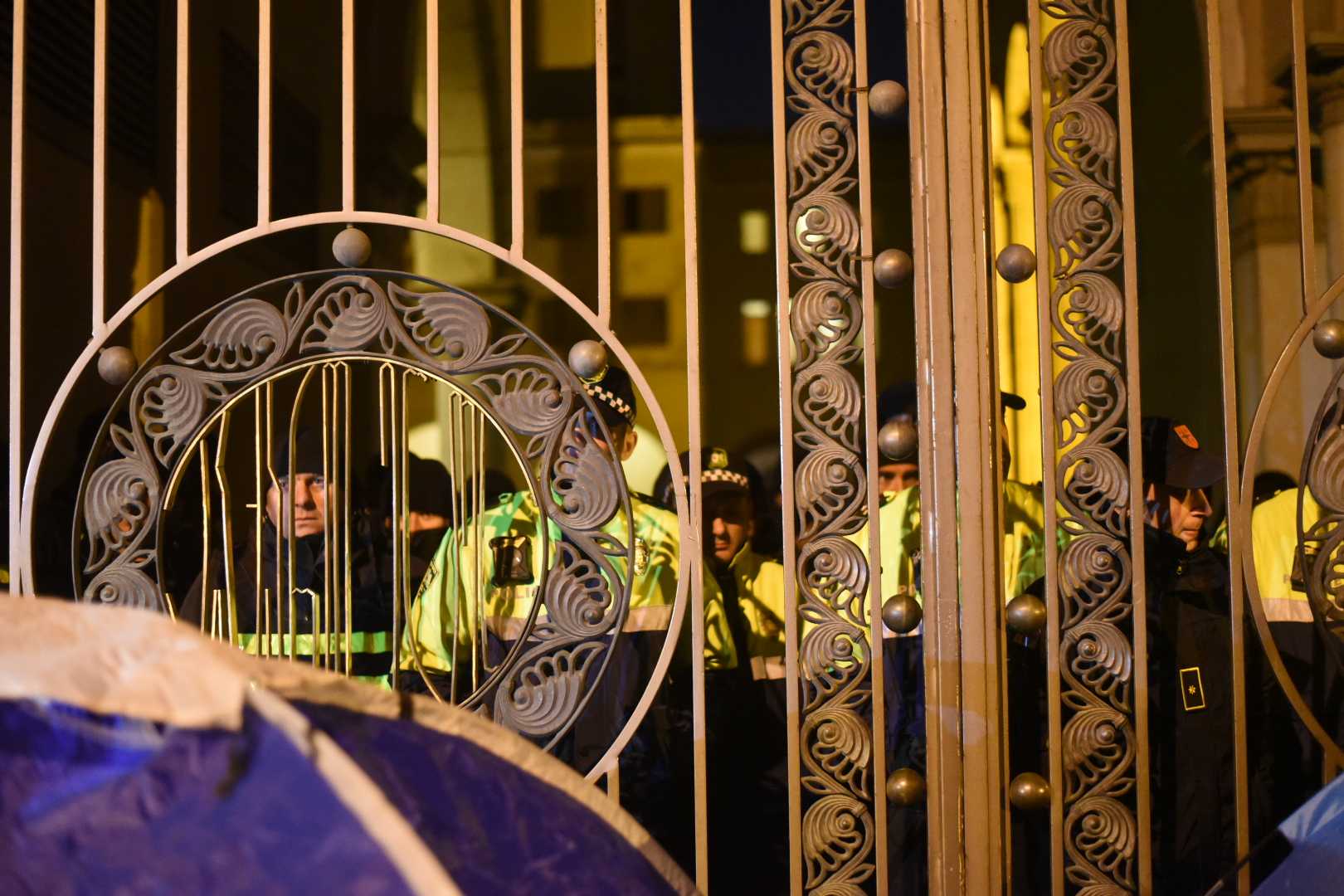
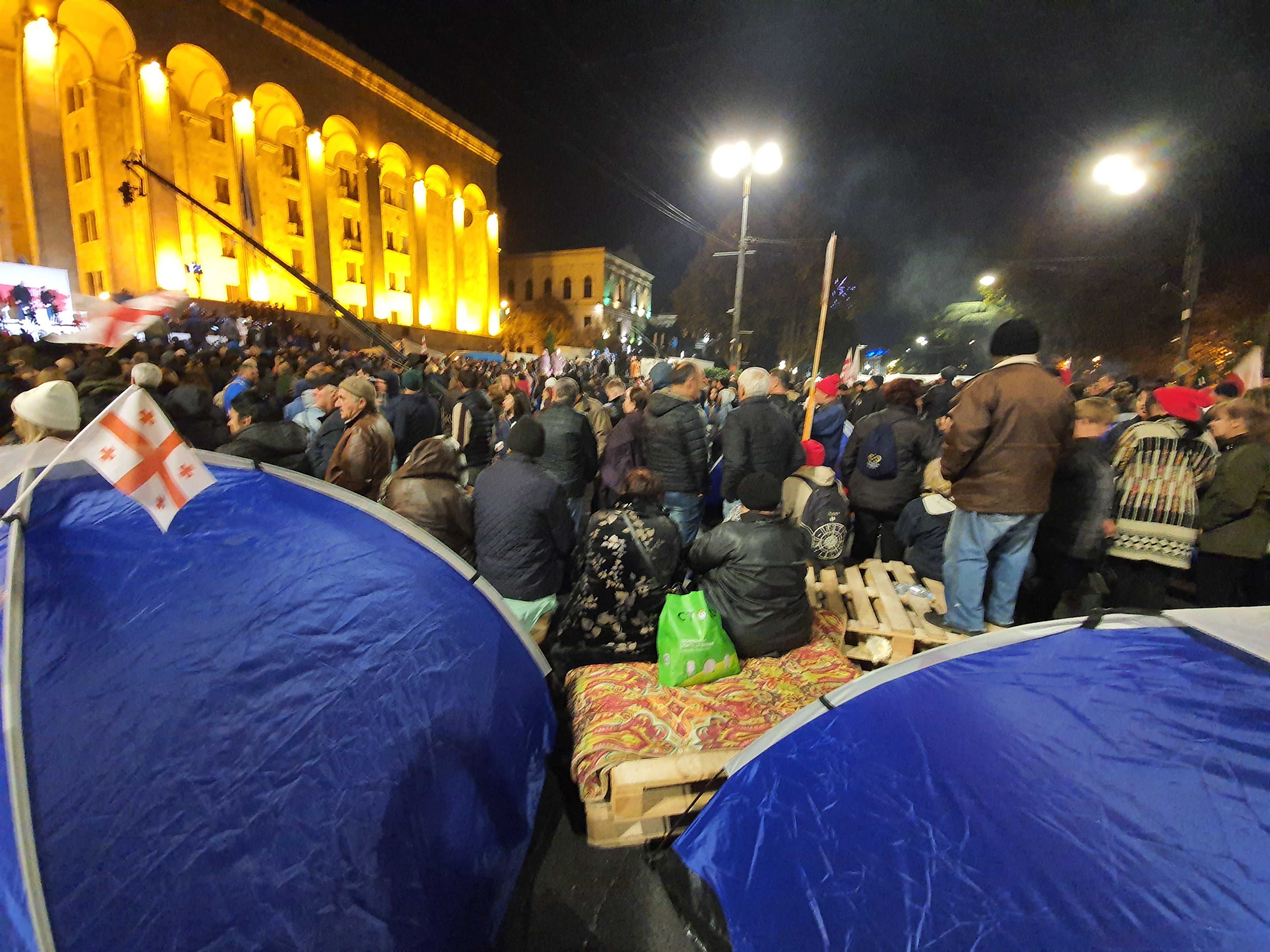
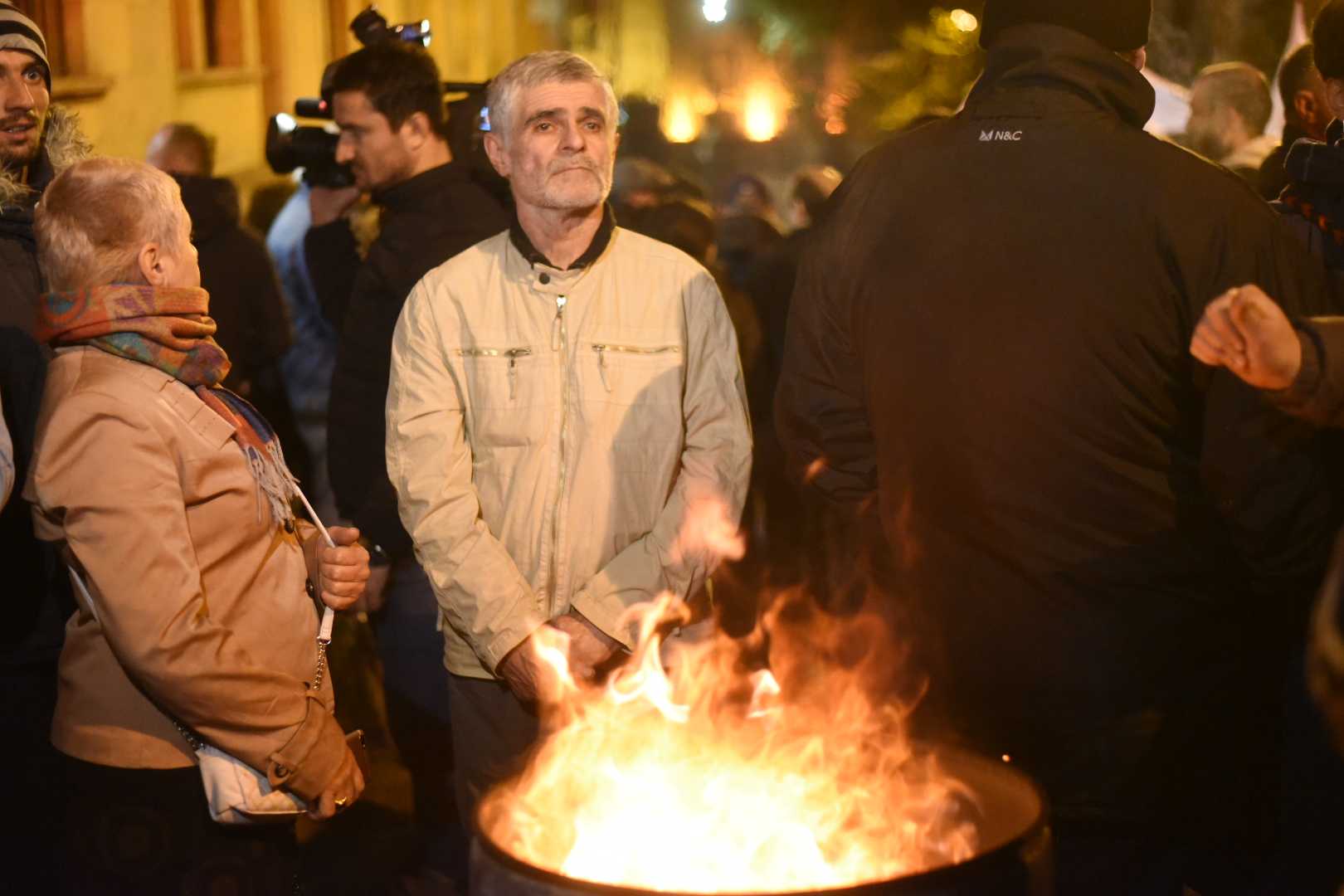
‘As the first step, we should prevent these traitorous members of parliament from continuing their work… Let us be clear to those who remain in the Georgian Dream majority: you won’t be able to continue working in this building from tomorrow’, European Georgia’s Gigi Ugulava said in a speech to the crowd.
On Sunday evening, protesters blocked the side and back entrance of parliament with tents, sandbags, and concrete blocks.
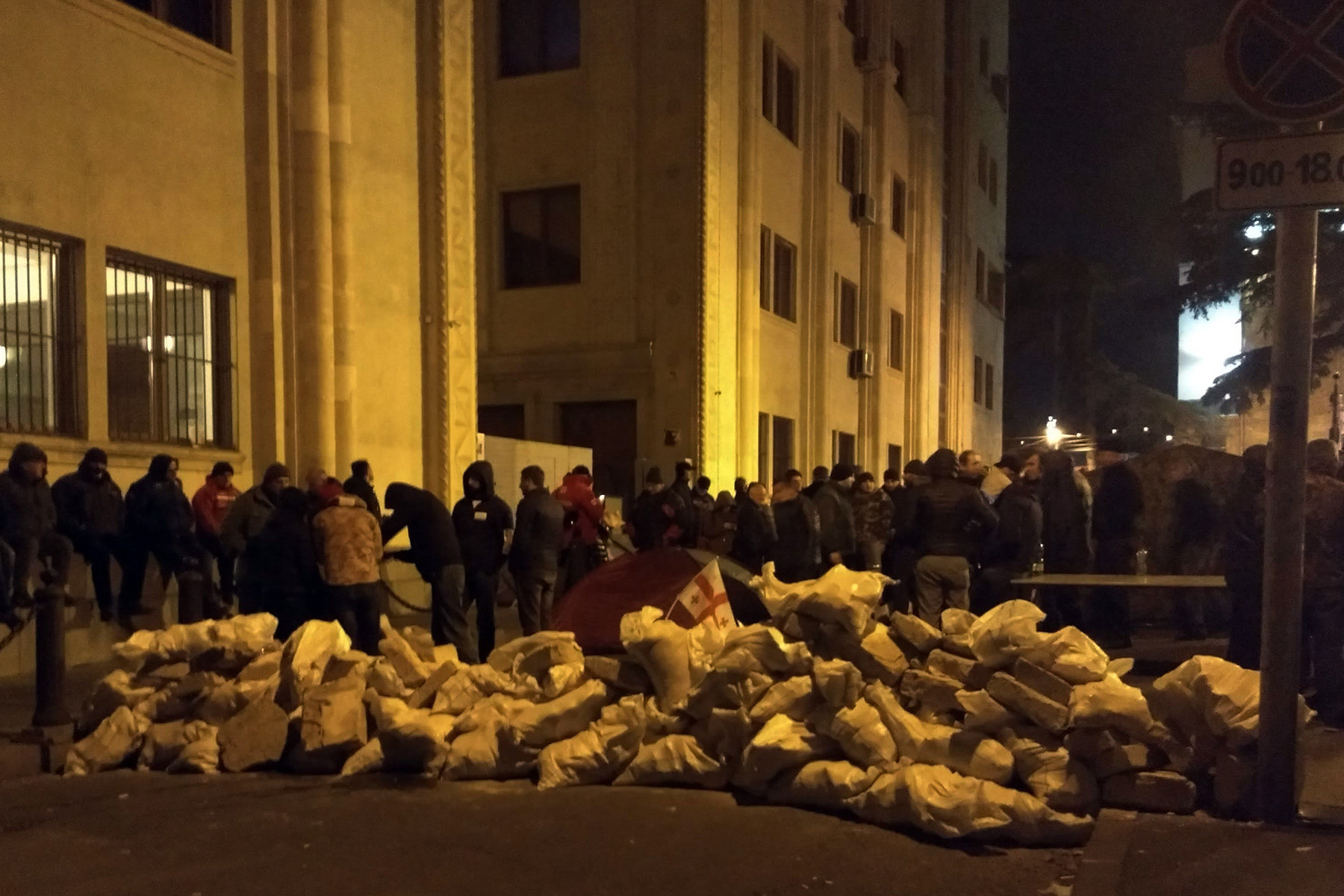
Shetsvale (Change!), one of the groups leading anti-government demonstrations together with For Freedom, later marched to the headquarters of the Georgian Dream party. They shouted ‘leave!’ and sprayed graffiti saying ‘the system must be crushed’ and ‘leave!’ near the building, under a heavy police watch.
The Shetsvale (Change!) group are marching from parliament towards the Georgian Dream offices in #Tbilisi to protest the failure of the ruling party to pass a promised electoral reforms bill on Thursday. #GeoElctoralCrisis pic.twitter.com/W3fdMEwnyb
— OC Media (@OCMediaorg) November 17, 2019
On 14 November, the leader of the ruling party and former Prime Minister Bidzina Ivanishvili made a public apology after 49 MPs from his party did not vote for their own bill.
The bill would have axed majoritarian single-member constituencies, which currently make up 73 of 150 seats in parliament, with all MPs being elected proportionally from party-lists.
[Read more on OC Media: Georgian Dream MPs block switch to fully proportional electoral system]
The failure to pass the reforms led some MPs from the second-tier leadership strata of the party, including two deputy speakers and three chairs of parliamentary committees to leave the party in protest.
[Read more on OC Media: More Georgian Dream MPs abandon party over electoral reform u-turn]
After 12 MPs abandoned the party within two days of the controversial vote, another, Health and Social Affairs Committee Chair Akaki Zoidze, also hinted on 16 November that he ‘needed a time out’ to rethink his place and future within the party.
Divided opposition
After holding three meetings since 14 November at the Labour Party offices, most of the major opposition groups agreed to demand interim parliamentary vote under the new party list-only system and to hit the streets in large numbers on Sunday.
The informal opposition coalition included the formerly ruling United National Movement Party (UNM) and other members of their Strength in Unity coalition, and the largest parliamentary group, the European Georgian Party, which split from the UNM in early 2017.
Others in the group not represented in parliament included the Labour Party, the Republican Party, their former leader and ex-speaker Davit Usupashvili (currently leading the Development Movement Party), the Free Democrats, libertarian party Girchi, the upcoming Lelo party (headed by TBC Bank co-founder Mamuka Khazaradze), the Democratic Movement (led by ex-Speaker Nino Burjanadze), and the Victorious Georgia Party (led by imprisoned former Saakashvili ally Irakli Okruashvili).
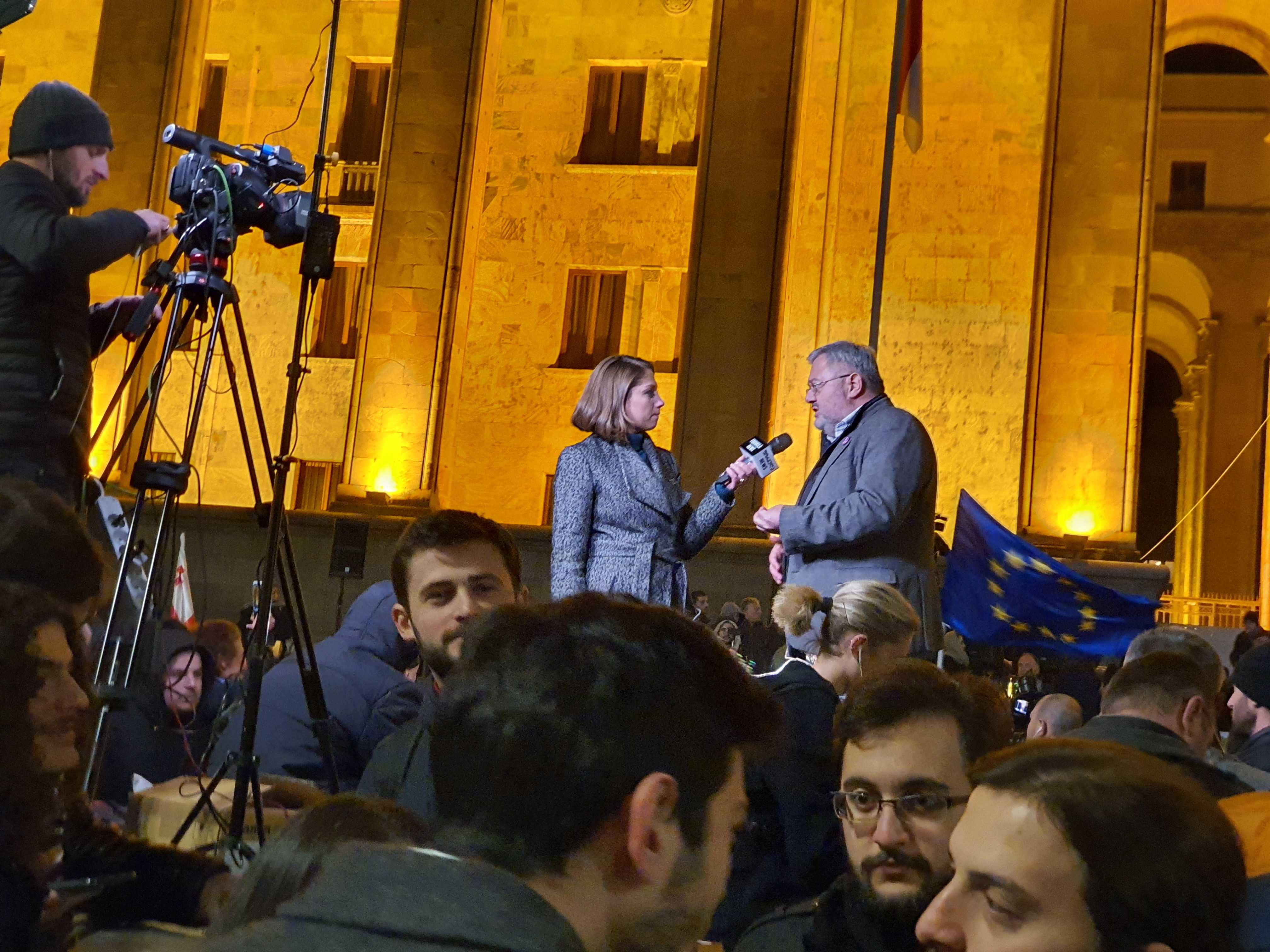
Okruashvili was arrested and remanded in pre-trial detention for ‘organising and participating in group violence’, over clashes between protesters and police on 20 June.
The loose opposition block also included Eka Beselia, one of the founding members of Georgian Dream, and several other MPs that left the party with her over controversial judicial appointments.
[Read more on Georgia’s ‘fourth wave’ judicial reforms: Legal committee head resigns amidst ‘crisis’ and ‘clan rule’ in Georgia’s judiciary]
Speaking to TV channel Pirveli, Aleko Elisashvili, leader of Georgia’s Civic Movement and runner up of 2017’s Tbilisi mayoral elections, said he would also join the blockade of parliament on Monday.
The third-largest party in parliament, the conservative Alliance of Patriots led by Irma Inashvili, criticised Georgian Dream for failing to pass the electoral reforms but underlined that they ‘would not mix’ with an opposition coalition containing the UNM.
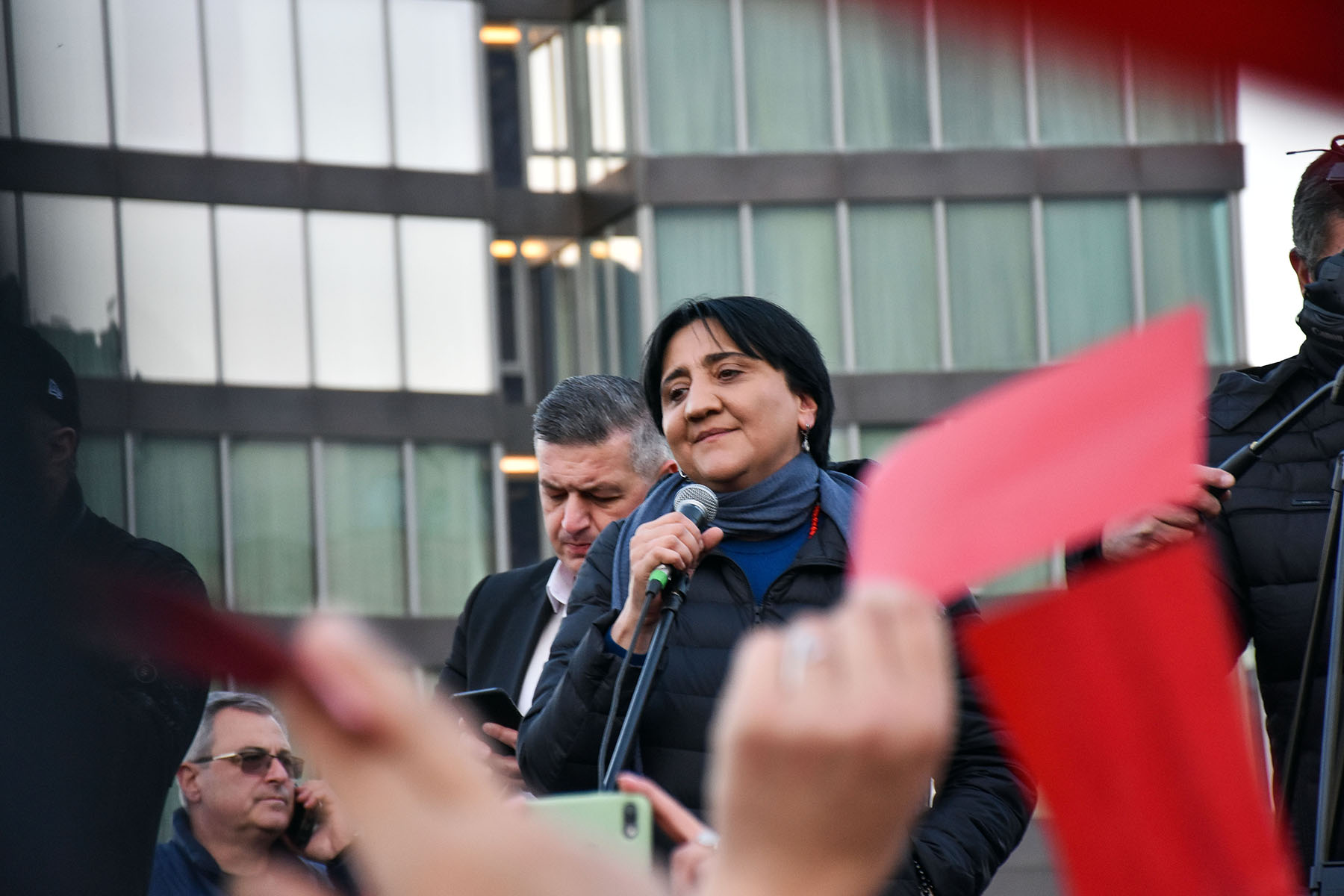
On 17 November, the Alliance of Patriots gathered at the First Republic Square in Tbilisi before marching to the National Opera Theatre on Rustaveli Avenue, not far from the larger opposition gathering outside parliament.
They held up ‘red cards’ as a ‘final warning’ to Georgian Dream and ended their gathering, which lasted for around 90 minutes, with a promise to launch ‘permanent protests’ against the government soon.
The police cordoned off the space between the two protests for ‘public safety’.
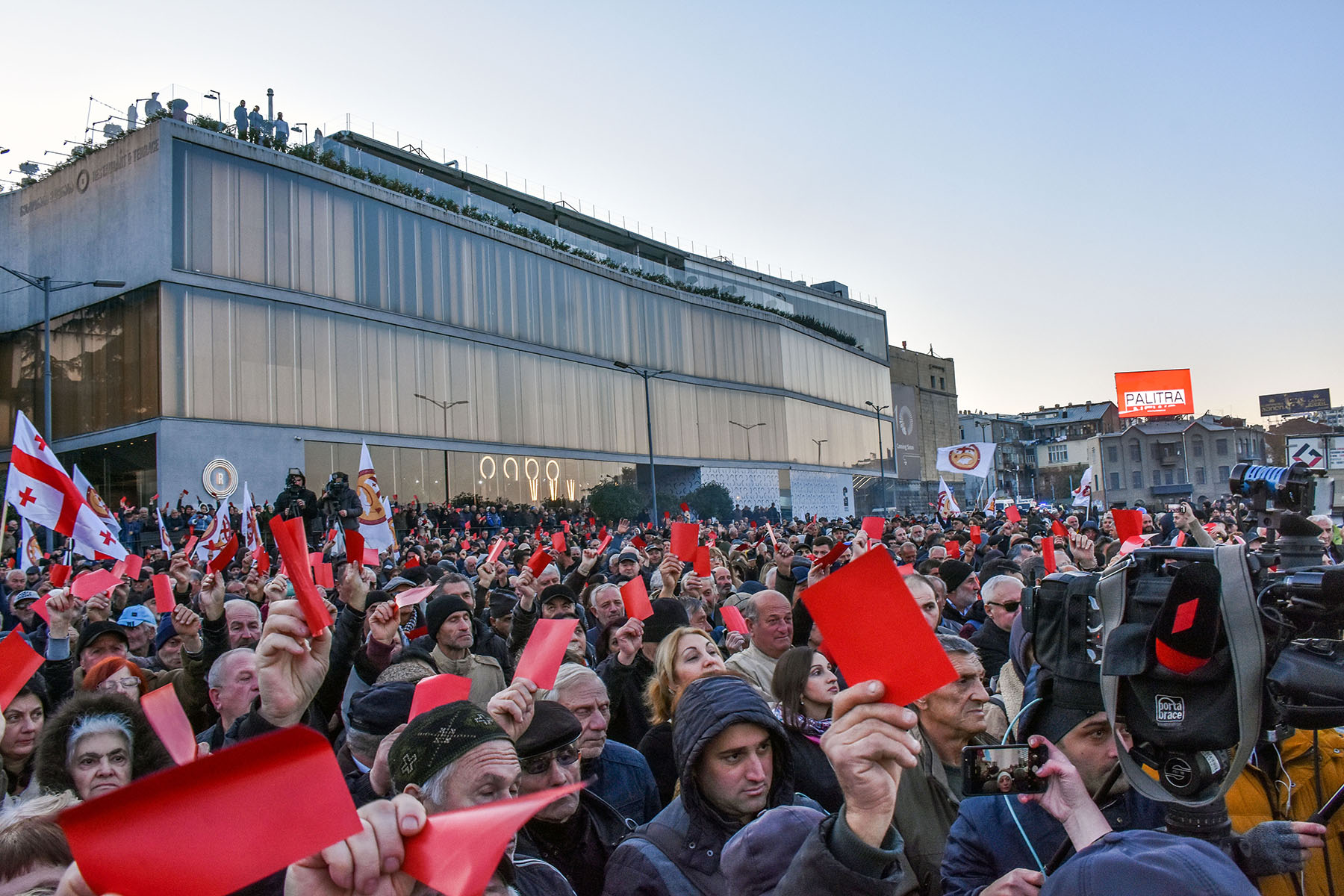
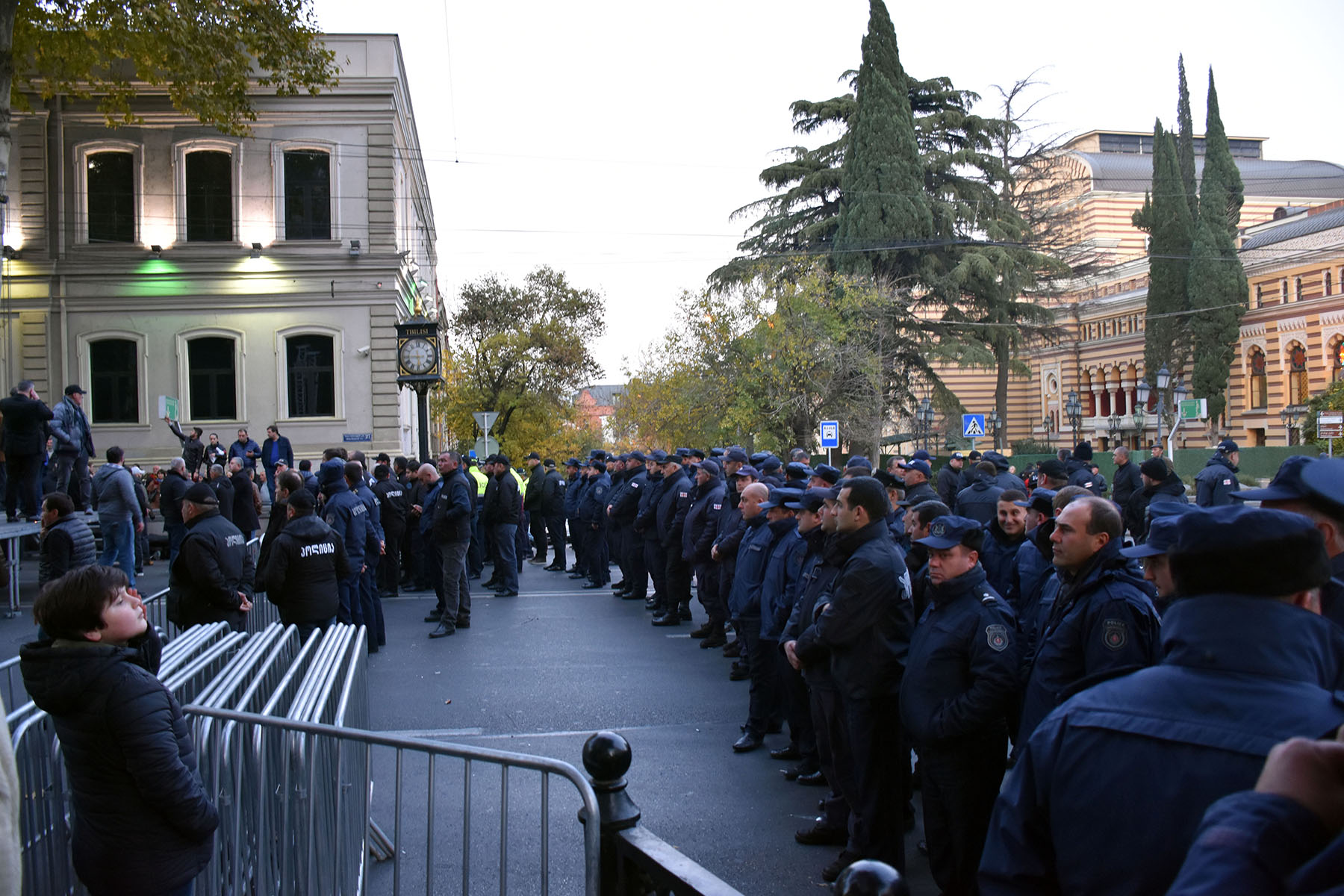
The far-right Georgian March group, known for their xenophobic and homophobic campaigns, joined the Alliance of Patriots rally, citing the presence of UNM, European Georgia, and queer rights activists as reasons for not joining the main protest.
Despite earlier promising to do so, homophobic campaigner Levan Vasadze did not join the rally organised by the Alliance of Patriots.
‘Staged rebellion’
Ivanishvili promised to change the country’s electoral system on 24 June in response to public outcry over excessive police force used three days earlier.
On the night of 20–21 June, thousands gathered to protest Russian Communist MP Sergey Gavrilov addressing parliament from the Speaker’s chair, resulting in clashes with police.
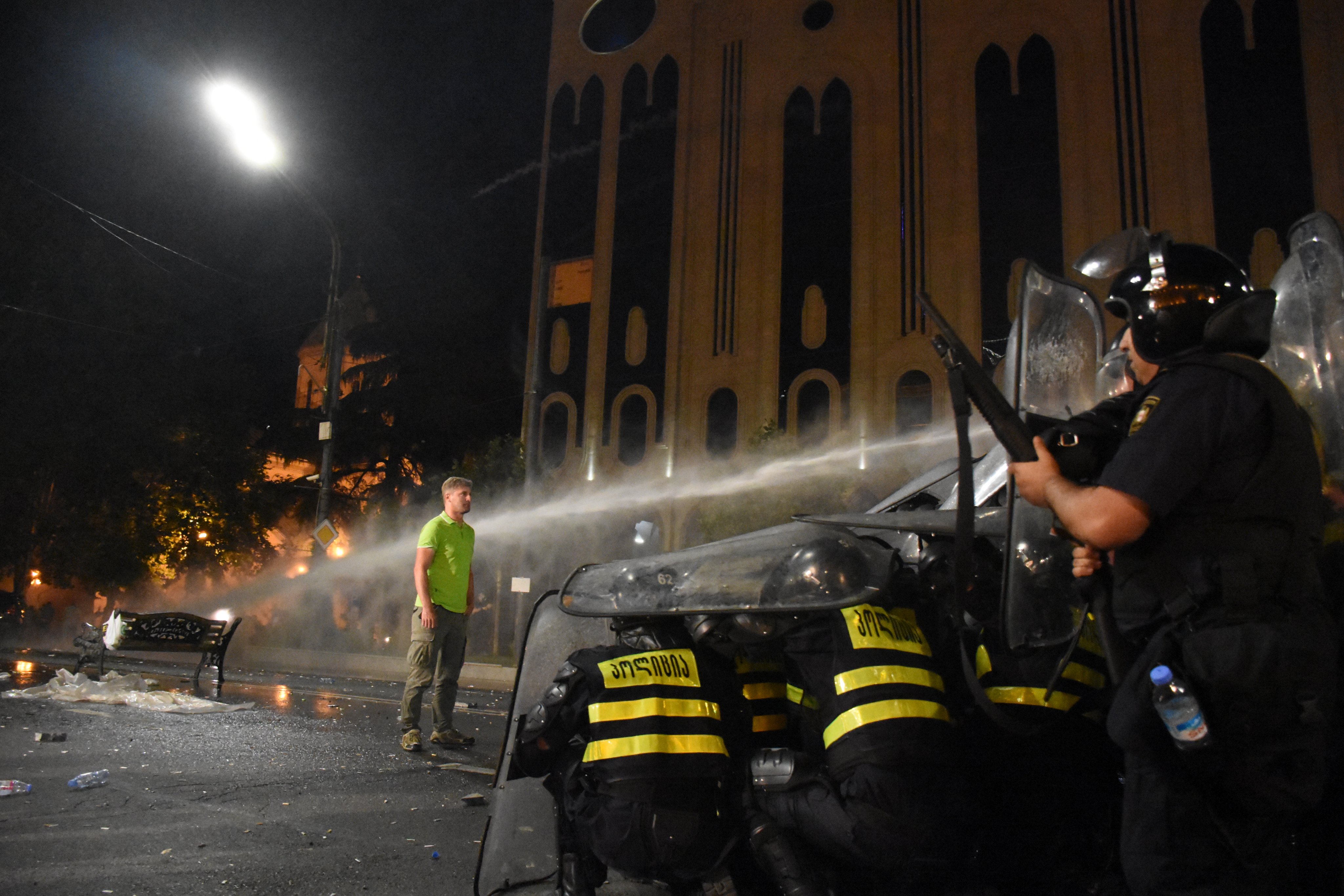
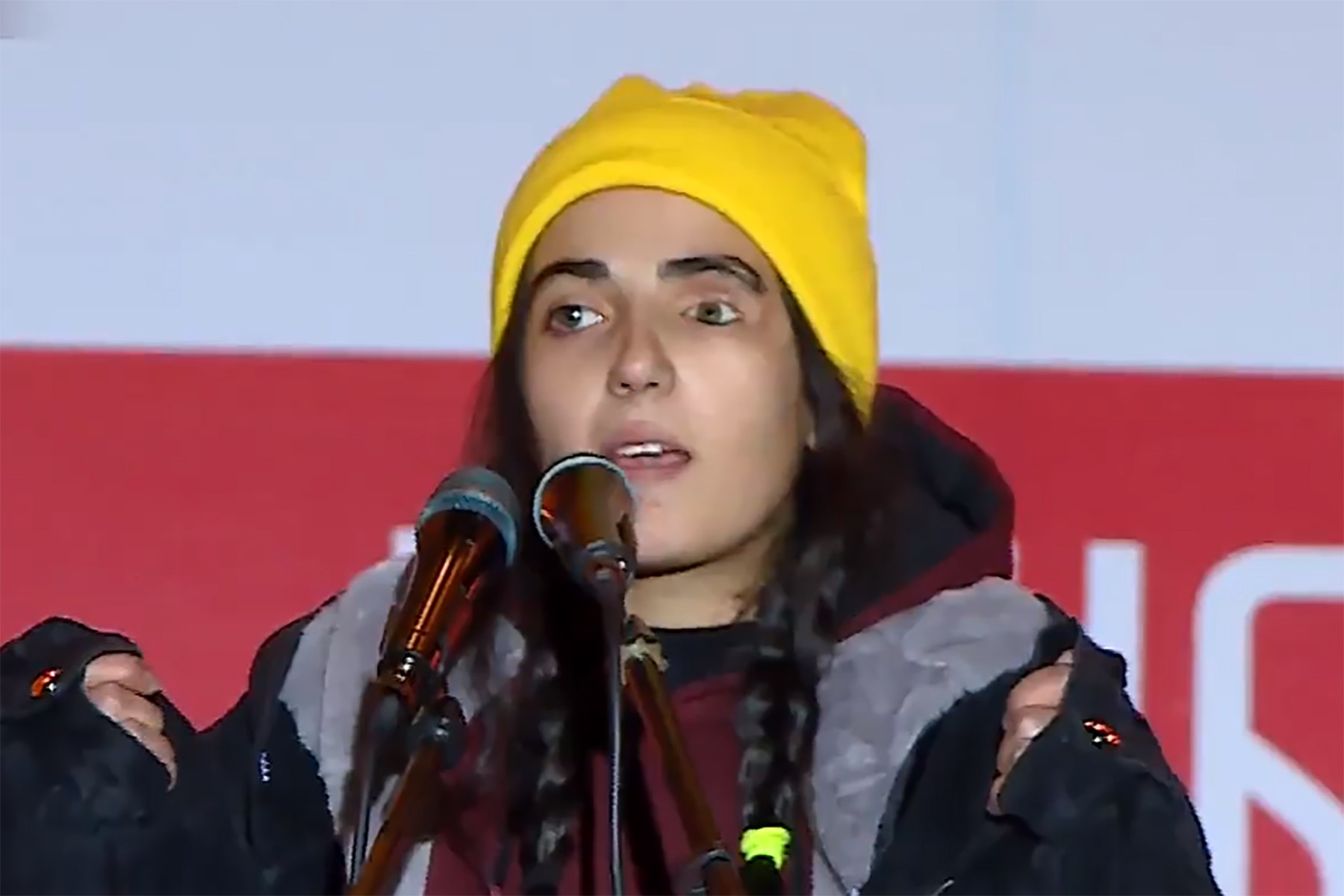
[Read Mako’s story: Voice | ‘What I hate the most is the injustice of it’]
On 14 November, Ivanishvili claimed that he was still in favour of the reforms but had failed to persuade members of his party — some of them former employees of his bank. The claim was met with scepticism from the opposition, with many claiming he had orchestrated the U-turn by his MPs.
Former Ivanishvili ally and ex-defence minister Tinatin Khidasheli argued that unless Ivanishvili expelled the MPs who did not vote for the reforms and invited those who departed the party back, these were ‘empty words’.
Some government critics even joked that Ivanishvili should have shown up to the rally himself to protest the sudden u-turn by his MPs.
The ‘German model’ electoral system
Following a party meeting on 15 November, several Georgian Dream leaders made it clear that they now wished to leave the matter behind and prepare for the October 2020 parliamentary elections under the current system.
Speaker Archil Talakvadze and his predecessor Irakli Kobakhidze underlined in their statements that Georgian Dream had still fulfilled their commitment to moving to a fully-proportional system by 2024, which was brought in with the 2017–2018 constitutional changes.
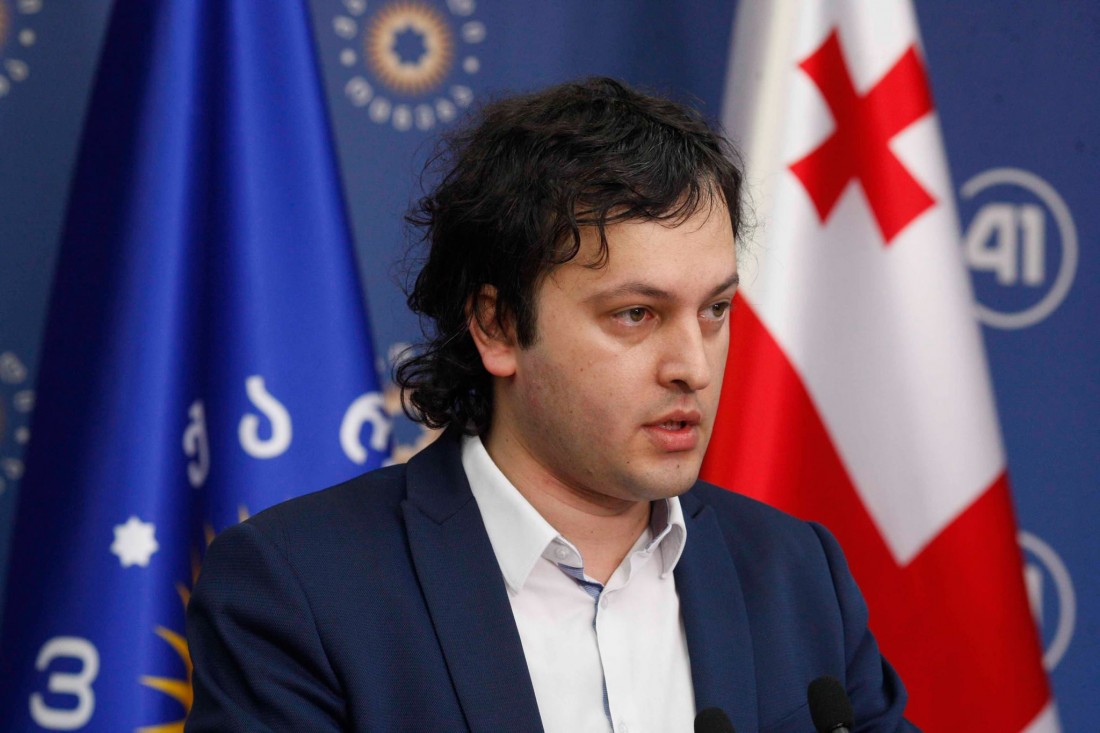
The opposition coalition suggested on Sunday moving to a ‘German model’ electoral system. But on 16 November, Georgian Dream parliamentary group leader Gia Volski and ex-Speaker Irakli Kobakhidze rejected the idea, insisting it would contradict the constitution. They did not elaborate further.
In elections to the German Bundestag, voters cast two ballots, one to elect their local MP and another from a party list. Parties that win at least 3% of votes from the party lists are allocated seats in a way to ensure that the makeup of parliament is as proportional to the percentage of votes cast for each party as possible.
Several constitutional experts including Vakhushti Menabde of the Georgian Young Lawyers’ Association have argued that this proposal would only require a simple majority in parliament to pass.
The bill rejected on 14 November required constitutional amendments and therefore the support of three-quarters of parliament — 113 MPs — to pass.









